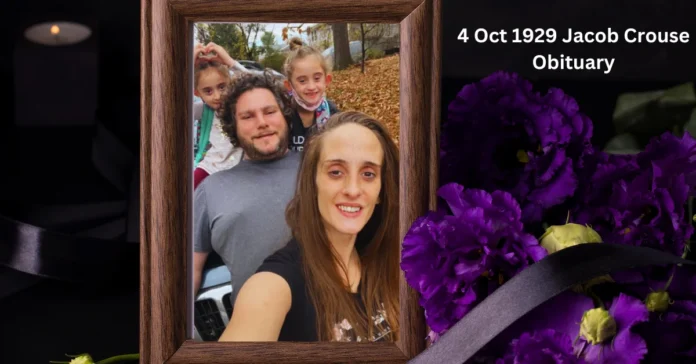In the tapestry of life, few threads are as meaningful and lasting as the memories we carry and the legacies we honor. An obituary is more than just an announcement of someone’s passing; it’s a celebration of their life, a testament to their contributions, and a comfort to those left behind. Today, we explore the life of Jacob Crouse and learn how to craft an obituary that truly honors such a remarkable individual.
Who Was Jacob Crouse?
Jacob Crouse was a beacon of light in his community, known for his unwavering kindness, dedication, and the myriad ways he impacted those around him. Born in a small town, Jacob’s early years were marked by an insatiable curiosity and a love for learning. He excelled academically, earning scholarships that led him to a prestigious university.
After graduating with honors, Jacob returned to his hometown, determined to give back to the community that had shaped him. He became a beloved teacher, inspiring countless students with his passion for education. His efforts extended beyond the classroom as he spearheaded community projects, from youth sports programs to local environmental initiatives.
Jacob’s family was the heart of his existence. A devoted husband and father, he cherished every moment spent with his loved ones. His weekends were often filled with family gatherings, where his laughter and stories brought joy to all. His legacy is not just in the accolades he received but in the lives he touched and the love he shared.
The Art of Writing an Obituary
Crafting an obituary is a delicate art that requires sensitivity, accuracy, and a deep understanding of the individual’s life. When writing an obituary, it’s essential to capture the essence of the person, highlighting their achievements, passions, and the impact they had on others.
Start with a brief introduction that includes the person’s full name, age, and date of passing. Follow this with a chronological account of their life, touching on significant milestones such as education, career, and family. Personal anecdotes and reflections add depth and warmth, making the obituary more than just a list of facts.
Remember to include the individual’s contributions to their community and any organizations they were part of. This not only honors their legacy but also provides a sense of connection for those who knew them through these affiliations. Lastly, mention the details of the funeral or memorial service, allowing friends and family to pay their respects.

Lessons from Jacob’s Obituary
Jacob’s obituary stood out for its heartfelt and comprehensive portrayal of his life. One of the key elements was the inclusion of personal stories that illustrated his character and values. For example, a former student shared how Jacob’s encouragement helped them overcome challenges and pursue their dreams. These stories brought Jacob’s legacy to life, showing the profound impact he had on individuals.
Another notable aspect was the emphasis on Jacob’s community involvement. By highlighting his contributions to various local initiatives, the obituary painted a picture of a man deeply committed to making a difference. This not only honored Jacob but also inspired others to continue his work.
Finally, the obituary balanced the factual with the personal, creating a narrative that was both informative and touching. This approach ensured that readers felt a connection to Jacob, even if they had never met him. It serves as a powerful example for obituary writers, family historians, and funeral directors aiming to create meaningful tributes.
Personal Reflections and Community Impact
Jacob Crouse’s life was a testament to the power of kindness, dedication, and community spirit. Friends and family recalled countless moments of Jacob’s generosity, from helping neighbors in need to mentoring young people. His ability to make everyone feel valued and appreciated left a lasting impression on all who knew him.
One of Jacob’s most significant legacies was the sense of unity he fostered within his community. He organized events that brought people together, creating bonds that transcended generations. His efforts in environmental conservation left a tangible impact, with many local parks and green spaces bearing the fruits of his labor.
In his obituary, these personal reflections and stories were woven together to create a rich tapestry of Jacob’s life. The community impact he had was evident in the outpouring of support and tributes from those who admired and respected him. His obituary not only honored his memory but also celebrated the ideals he stood for.
Conclusion
Writing an obituary is both an art and a responsibility. It requires a delicate balance of facts, emotions, and narratives to truly honor the life of the deceased. Jacob Crouse’s obituary serves as an exemplary model, capturing the essence of his life and the legacy he leaves behind.
For obituary writers, family historians, and funeral directors, Jacob’s story offers valuable lessons in creating meaningful tributes. By focusing on personal stories, community contributions, and a balanced narrative, you can craft obituaries that resonate deeply with readers and honor the lives of those who have passed.
If you’re looking to refine your obituary-writing skills or need assistance in crafting a tribute, don’t hesitate to reach out to professionals who can guide you through the process. Remember, an obituary is more than just an announcement—it’s a celebration of a life well-lived.


